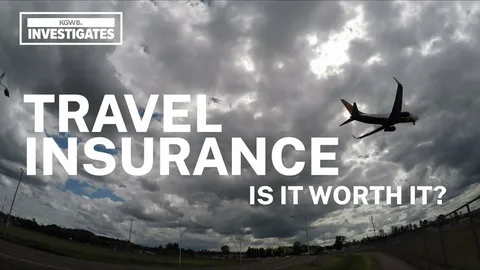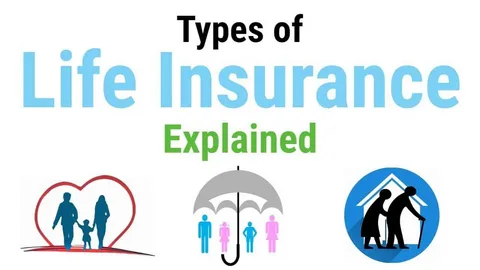Travel Insurance: Is It Worth the Cost?
As travel becomes an integral part of our lives, the importance of protecting our trips through travel insurance cannot be overstated. While some travelers may view it as an unnecessary expense, the peace of mind and financial protection it offers can be invaluable. This blog delves into what travel insurance covers, its benefits, and whether it’s worth the investment for your next adventure.
What Is Travel Insurance?
Travel insurance is a policy designed to cover unforeseen events that may disrupt your trip. This can include medical emergencies, trip cancellations, lost luggage, and other travel-related issues. Depending on the policy, travel insurance can provide coverage for a variety of scenarios that might otherwise result in significant out-of-pocket expenses.
Types of Travel Insurance
- Trip Cancellation Insurance: This type of coverage reimburses you for pre-paid expenses if you have to cancel your trip for a covered reason, such as illness, a family emergency, or unforeseen events like natural disasters.
- Medical Coverage: Health care abroad can be costly. Medical coverage ensures you are protected in case of illness or injury while traveling, including hospital stays, doctor visits, and emergency medical evacuations.
- Baggage Insurance: This covers loss, theft, or damage to your personal belongings while traveling. If your luggage is lost or delayed, baggage insurance can help you replace essential items.
- Travel Delay Insurance: If your trip is delayed due to weather, mechanical issues, or other covered reasons, this insurance can reimburse you for additional expenses, such as meals and accommodations.
- Emergency Evacuation Coverage: If you find yourself in a situation requiring immediate evacuation due to medical emergencies or natural disasters, this coverage can help with transportation costs.
Why Consider Travel Insurance?
- Medical Emergencies Abroad: Many travelers underestimate the potential costs of medical care outside their home country. A simple hospital visit can cost thousands. Travel insurance provides financial protection against these unexpected medical expenses.
- Trip Cancellations: Life is unpredictable. Whether it’s a sudden illness, a family emergency, or a work obligation, trip cancellations can happen. Travel insurance can help recoup your non-refundable expenses, making it a wise investment.
- Lost or Delayed Luggage: Imagine arriving at your dream destination only to find your luggage missing. Travel insurance can provide compensation for lost items and cover the costs of essentials while you wait for your belongings to arrive.
- Peace of Mind: Having travel insurance allows you to travel with confidence. Knowing that you have a safety net in case of emergencies can enhance your travel experience, letting you focus on making memories instead of worrying about potential problems.
Assessing the Costs vs. Benefits
The cost of travel insurance can vary significantly based on factors such as your age, the destination, the length of your trip, and the type of coverage you choose. On average, travelers can expect to pay between 4% to 10% of their total trip cost for insurance. While this might seem like an added expense, consider the potential financial impact of unexpected events.
For instance, a medical emergency abroad could lead to bills exceeding $10,000, while trip cancellations can result in losing thousands in non-refundable bookings. When weighed against these potential costs, the expense of travel insurance can be relatively minor.
When Is Travel Insurance Not Necessary?
While travel insurance is generally a good idea, there are instances when it might not be necessary:
- Existing Health Coverage: If you have comprehensive health insurance that covers you abroad, you may not need additional medical coverage. However, verify the specifics, as many plans have limited or no international coverage.
- Credit Card Benefits: Some credit cards offer travel insurance as part of their benefits, especially for travel booked with the card. Check your credit card’s terms to see what coverage is included.
- Non-Refundable Expenses: If you’ve made a trip with minimal non-refundable expenses or you’re confident you can manage costs if plans change, you might consider skipping insurance.
Tips for Choosing the Right Travel Insurance
- Assess Your Needs: Consider your travel plans, including the destination, duration, and activities involved. Tailor your policy to match your specific needs.
- Read the Fine Print: Understand what is covered and what is not. Look for exclusions and limitations, especially regarding pre-existing conditions and adventure sports.
- Compare Policies: Don’t settle for the first policy you find. Compare different insurers and policies to find the best coverage and price.
- Consider Coverage Limits: Pay attention to coverage limits for medical expenses, cancellations, and lost belongings. Ensure these limits align with your travel plans.
- Check Reviews: Research the insurer’s reputation, particularly their customer service and claims process. Online reviews can provide insights into other travelers’ experiences.
Common Misconceptions About Travel Insurance
- “I’m healthy; I don’t need insurance.” Even healthy travelers can face unexpected illnesses or accidents. Travel insurance is a safeguard against unforeseen circumstances.
- “It’s too expensive.” While costs can vary, consider the potential financial repercussions of traveling without insurance. In many cases, the investment is minimal compared to the risks.
- “I’m covered by my employer.” While some employers offer travel insurance for business trips, personal travel usually requires separate coverage. Always confirm what is included.
Final Thoughts on Travel Insurance
In conclusion, travel insurance is an important consideration for anyone planning a trip. It offers a safety net for unexpected events, protecting you financially and providing peace of mind. Whether you’re traveling domestically or internationally, the benefits of having travel insurance can far outweigh the costs.
As you plan your next adventure, take the time to assess your insurance needs, compare policies, and make an informed decision. By doing so, you can enjoy your travels knowing you’re protected against the unexpected, allowing you to focus on making unforgettable memories. Remember, while you can’t predict the future, you can prepare for it—investing in travel insurance is a smart way to do just that.









